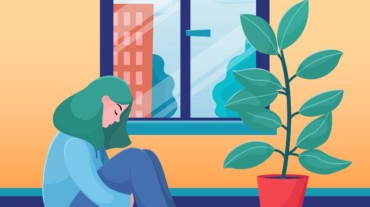
After over a year of staying at home, adhering to social distancing norms and minimising travelling outside for work or leisure, we are finally seeing the world slowly opening up to the prospects of socialising and travelling.
While Covid-19 is still a prevalent threat, fully vaccinated people are well-positioned to step out and meet their loved ones or return to work. However, spending all this time in isolation has made certain people afraid to return to their lives, how it used to be before Covid hit. This feeling of fear is called ‘Cave Syndrome’.
Returning back to work or meeting friends and family in person is proving to be a difficult transition, as adjusting to a new normal takes time. Pandemic, in itself, has caused a lot of hardships and misery for people across the world and even people who are fully vaccinated are finding it hard to reconcile with the fact that they may start venturing out of their homes. This is perhaps due to the experience people have had while dealing with Covid-19, which has perhaps made them overestimate the risk and probability of harm that might come their way.

These long-term psychological effects were bound to occur as people are susceptible to develop stress, anxiety, and post-traumatic stress disorder (PTSD) after suffering from trauma.
Cave Syndrome is a result of factors such as daily routine or habits, risk perception and social network of friends, colleagues and family. Over the past year, we have been wearing a mask, sanitising our hands and maintaining social distance. There is a disconnect between people’s risk appetite towards getting infected versus the chances of them being isolated and lonely. Simply speaking, people would rather stay at home than risk being extremely ill or run the risk of dying.
A post-pandemic life would mean that people will have to travel to and from work and spend financial and emotional resources to socialise and engage in extracurricular activities. The anxiety associated with deciding what to wear, possible lack of connection with friends, and office politics is real for a lot of people and triggers the need to continue home isolation.

This reluctance or discomfort towards joining back the society is normal and expected. However, a few tips can help you overcome the anxiety and attempt venturing out all over again:
So, though it seems difficult, with time, patience and effort, you can start to venture out again.